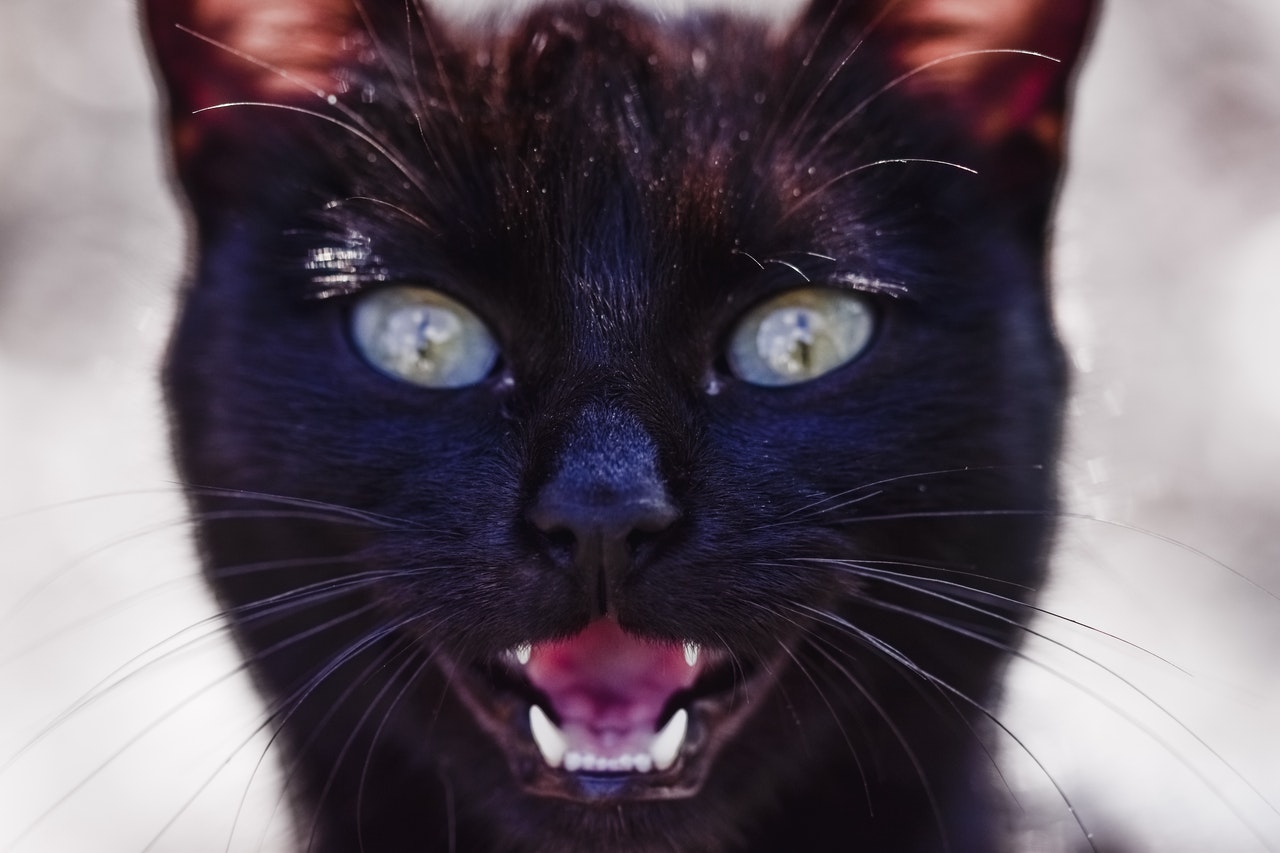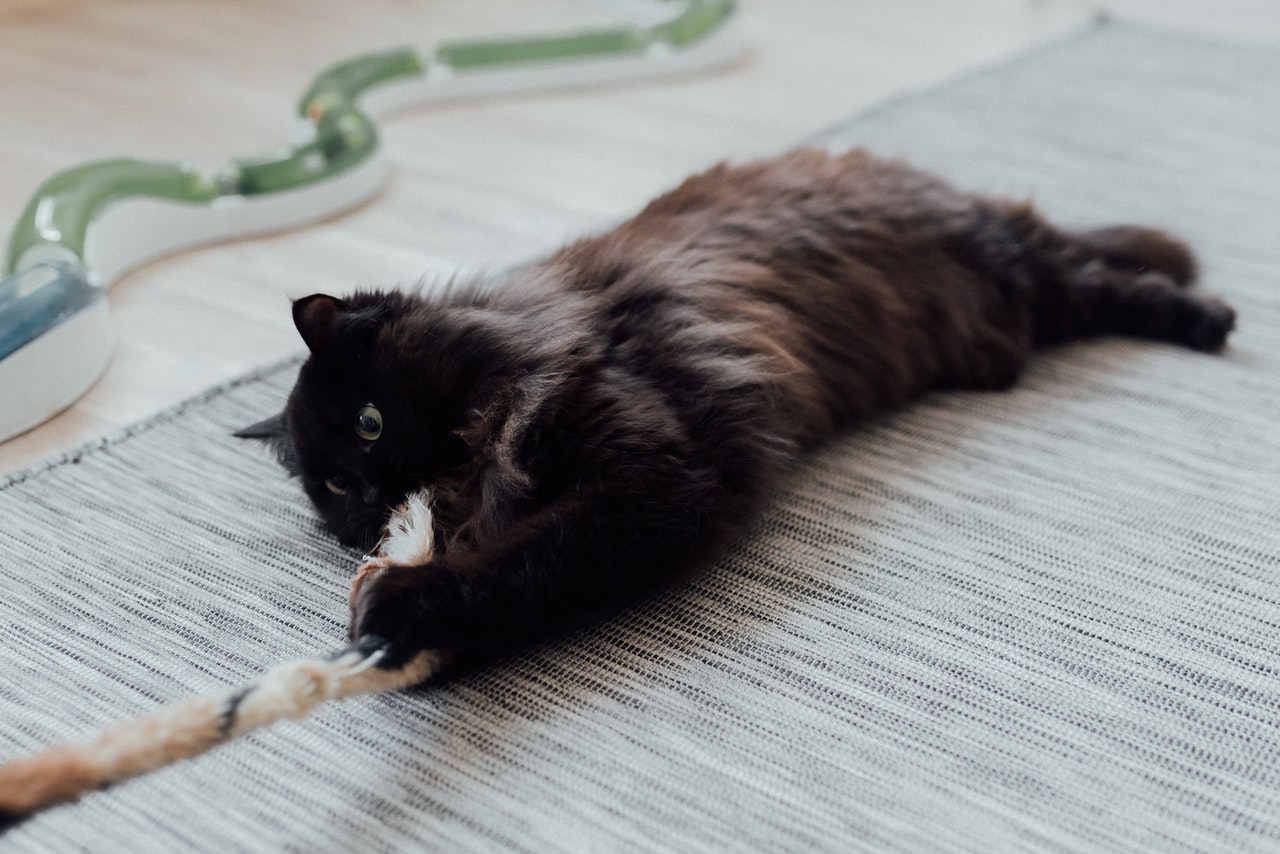You’re all tucked in bed, dreaming peaceful dreams that feature tropical drinks, an ocean breeze, and warm sunshine when it happens. Suddenly, Miss Mittens begins to sing the song of her people while racing through the house at top speed. Cat parents around the globe, we feel your pain. Cat behavior often seems difficult to decode, but we’re here to get to the bottom of the most common behavioral issues that keep you up all night. Most importantly, we’ll tell you how to nip each problem in the bud so you can go fall asleep peacefully — minus the furry interruptions.

Why do cats misbehave at night?
Contrary to popular belief, cats aren’t actually nocturnal. Instead, our feline friends are crepuscular, which means they’re most active at dawn and dusk. While cat sleep patterns may appear erratic to us, they make perfect sense from an evolutionary standpoint. Most predators are active during the brightest parts of the day. By conducting their affairs at dawn and dusk, cats are much less likely to encounter a predator.
Unfortunately for us, this genetically hardwired behavior means our fur babies are often at the most active in the wee hours of the morning while we’re trying to sleep. Dubbed “the night crazies” by some cat parents, these behaviors can interrupt your sleep and make you question why you adopted a cat in the first place. But we have some good news: there are things you can do to calm down your purring gremlin.
Quell the nighttime screaming fits
Many cats are vocal at night, frequently waking their human family members with their screeching. Some cats cry because they’re hungry or thirsty, while other cats are vocal because they’re bored and want to play. Make sure to leave out some kibble for your feisty feline before bedtime, and double-check her water bowl to ensure she won’t get thirsty. If your cat is crying from boredom, try engaging her in playtime before you settle down for the night. She’ll enjoy the much-wanted attention she receives, and expending her energy will help tire her out. If her crying continues, a trip to the vet for a checkup may be in order. Cats are notorious for hiding illnesses and injuries, but they do occasionally cry when they’re distressed.

Keep pouncing to a minimum
While some cats are more independent, others would rather stay plastered against your side at all times. If your cat has a habit of pouncing on you while you sleep, the last thing you want is a cuddle session. However, your feline friend might be desperate for attention if you spend a lot of time away from home. You can reduce his nighttime jump attacks by spending plenty of quality time with him when you get home from work. Try placing a cat tree near your bed, which gives your fur baby somewhere he can jump while being near you. If all else fails, try locking your frisky feline out of your bedroom at night. If he screams outside your door, you may want to try cordoning him off in another room at night. (Just make sure he has toys, food, water, and a litter box.)
Allow your cat to hunt
Because cats are accustomed to hunting at dawn and dusk, your feline companion may “hunt” her food and toys at night. In the wild, cats very rarely locate their prey in the same place twice, but her food dishes and toys are where she last saw them. If your cat vocalizes or has a fit of the late-night zoomies, she might be expressing her displeasure over an unsuccessful hunt. Fortunately, you have several options if this behavior interrupts your sleep.
- Leave food scattered around the house. Your cat’s sense of smell is 14 times better than yours, so tracking down a few tasty snacks is child’s play for her. But it allows her to indulge in her instinctive need to hunt her prey, which can help keep her quiet at night.
- Give your cat a food puzzle. An interactive puzzle feeder like this one not only keeps your cat occupied, but its nonslip feet keep your fur baby from dragging it across the floor and waking you from your sleep.
- Develop a routine. Cats are creatures of habit. If you engage her in daily play sessions in the late afternoon or early evening, she’ll eventually begin to anticipate playtime, making her less likely to disturb your sleep at night.

Do your cat’s nocturnal antics keep you up at night? Once you’ve ruled out potential health conditions, you’ll need time, patience, and possibly a white noise machine to restore order in your home. Try tiring your kitty out before bed, make sure he has his basic needs met, and don’t encourage his late-night demands for attention. No matter how difficult it can be, the best way to curb your cat’s nighttime crazies is to ignore them.



